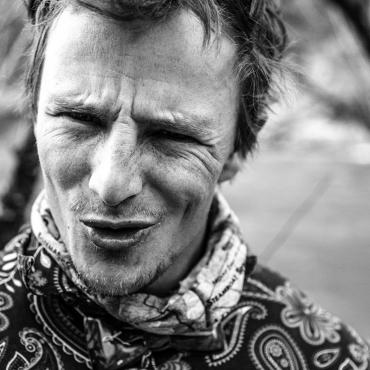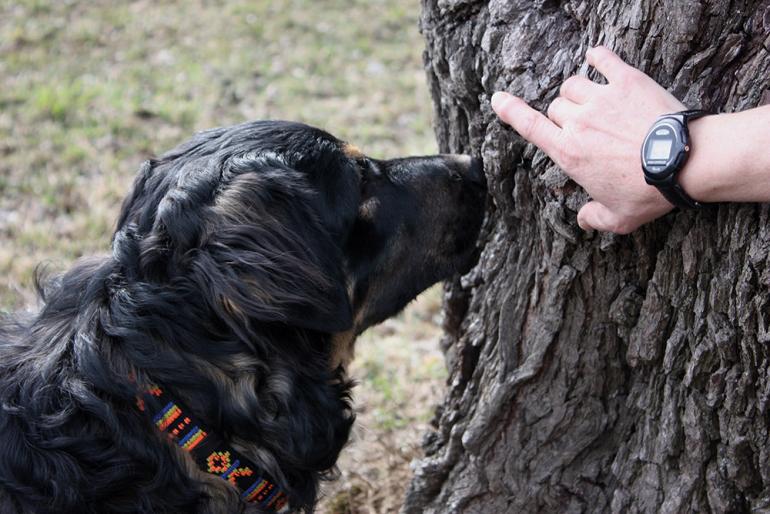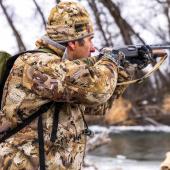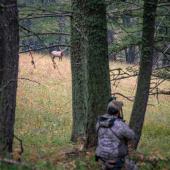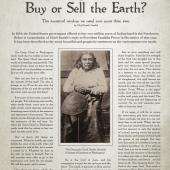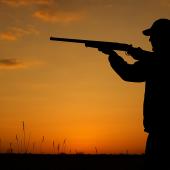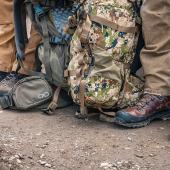Bearing the Weight
Wounding is the worst part of hunting.
Her hind leg flopped lifelessly as she ran. Now, it was nothing but a piece of extra baggage she had to haul across the prairie on her way to a slow and painful death. The pit in my stomach expanded into my throat as I struggled to keep her in the scope, her vitals bouncing above and below my crosshairs. I had killed her, she just hadn’t died yet. The only question left was, would I be able to retrieve her?
It was opening day of antelope season, and instead of things going to plan, I had made a terrible shot. I had missed cleanly before, but never yet wounded an animal. Never had I chased something I knew was going to die long enough that the thought of not getting it actually seemed possible. My head pulsed with anger and regret.
Fortunately, that day I did catch up to her, but it wasn’t pretty. And it stained my memory as dark as the blood that coated her frayed hide. For the first time I understood how people could hate hunting. For the first time I understood how people could quit hunting.
That was my first wounding, and I’ve had others since. There was the time that I dropped the buck in his tracks in the middle of a CRP field. We celebrated with high-fives before walking up only to find out he was nowhere to be found. There was the bull that jumped my string at 30 yards. From my angle, the arrow went into his belly, but I never found it, nor a speck of blood, so I’ll never know.
Wounding is no doubt the worst part of hunting, but it’s a part of it nonetheless—nobody, no matter the skill level, is immune to the possibility of a bad shot. But as hunters, we have a responsibility of following through. Be it bow or rifle, shotgun or muzzleloader, when we pull the trigger or release an arrow, we are fully committed to the animal in the crosshairs. While it may seem obvious, this can demand serious discipline. We must resist the temptation to shoot at a different animal until a miss is confirmed. I’ve had six-points stand up after shooting at rag horns. I’ve had big muleys walk out after pulling on three-points. And on all of them—though I was pretty sure I’d missed the first shot—I had to pass. It’s not easy, but that’s the principle, and it’s what we agree to when pursuing wild game.
When we kill, we need to do it ethically and responsibly. That means confirming a clean miss—checking for blood and making sure the animal is moving healthy again—before pursuing another target. That means following a blood trail for as long as we can and returning to look for it the next day even if we have other plans. That means punching our tag if the wounded goes unfound.
In a perfect world, we wouldn’t miss or wound animals, but I suppose that’s why they call it hunting. And as the late Jim Posewitz said, “Hunting is one of the last ways we have to exercise our passion to belong to the earth, to be part of the natural world, to participate in the ecological drama, and to nurture the ember of wildness within ourselves.” For this reason, and a host of others, I find it necessary to preserve this activity for future generations—so long as its ethics and responsibility are maintained with it.
Lost & Found
In the last few moments of shooting light, a deer appeared. It was now or never. I held off-hand and fired. The doe went down, but when I approached, she jumped up and ran into the woods. An hour later, I hadn’t found her. In the morning she’d be bloated, the meat spoiled. What to do?
Then I remembered: Cole, my brother’s dog, was in the back of the truck. I took the big Lab-Newfie mix to where the doe had lain. As he nosed the pungent, blood-stained soil, I said, “Deer. That’s a deer, Cole. Deer. Find the deer.”
He looked at me, confused. My brother had taught him to “find it”—sticks, tennis balls, whatever lay hidden in the grass during their games of fetch—but I hadn’t thrown anything for him to find. I pointed at the blood and said it again: “Find the deer.”
Then it clicked. Cole’s head shifted, his body tensed, and I knew he understood. “Find it,” I said again, and he bounded off into the dark woods, nose to the ground. I ran after him, stumbling over downed trees. Five minutes later, he stopped next to the doe and looked back at me, proud as a peacock.
Bad shots happen. Wounded game happens. But losing an animal should never happen. If you stick a bull too far back or gut-shoot a deer, if darkness falls or the blood-trail dries up, don’t give up. Get a dog—yours, a friend’s, a neighbor’s, whatever. Their noses have 300 million olfactory receptors and their brain’s scent-processing center is 40 times larger than our own. They view the world primarily through their noses, not their eyes, and following the odor of a wounded ungulate is akin to us tracing the path of a jet plane high in the sky.
Southwest Montana teems with hunters. Someone you know has a bird dog, which is the best choice for tracking game. But any sporting breed, trained or untrained, can follow a scent. Barring that, any ol’ dog will do, it just may take a little more work to get it dialed in to the task at hand. So the next time you can’t find your animal, let a dog do it for you. And the next time a bowhunter tells you a story about losing a bull elk, lock eyes and ask, “Why didn’t you use a dog?” —Mike England

